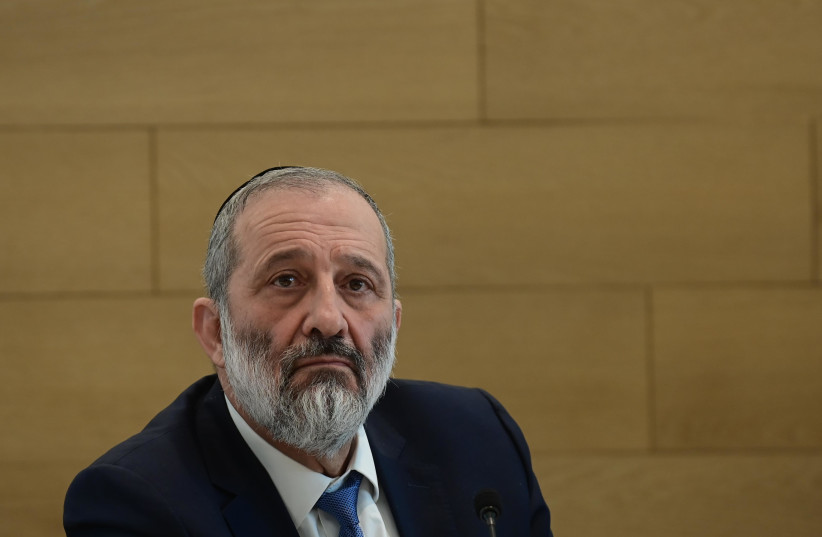Take the well-known song from the Passover Haggadah – “Dayenu” – insert into it the negative events currently buffeting the country, rather than the positive acts God performed for the Jewish people during the Exodus from Egypt, and you have a good description of Israel three months before it celebrates its 75th birthday.
If Israel were only dealing with a terrorist wave from Judea and Samaria, that would be enough (dayenu)..
If Israel were only dealing with Iranian attempts to set up a new base of operation in Syria, that would be enough.
If Israel were only dealing with tension on the Temple Mount due to a new far-right national security minister, that would be enough.
If Israel were only dealing with a judicial reform proposal that has turned into a do-or-die struggle between the branches of government over which branch has the upper hand – a struggle that brought 80,000 people out into the rainy streets last Saturday night, chanting that Israeli democracy was in danger – that would be enough.

But none of that, apparently, is enough. The decision by the High Court of Justice on Wednesday to strike down the appointment of Arye Deri as a government minister adds a new toxic element to the country’s current explosive mix: the ethnic card.
High Court's Deri decision unleashes ethnic genie
The ethnic genie – the feeling among many Israelis of Mizrahi descent that they are treated differently than Ashkenazim – has just been let out of the bottle and will only fan the flames of one of the worst domestic crises this country has ever faced.
Welfare and Social Affairs Minister Ya’acov Margi (Shas) hinted at this in a radio interview eight hours before the court ruling, when he predicted what the justices would decide. Asked how he was so sure that the justices would rule against Deri, Margi – no hothead – said, “Statistically, the court votes most of the time against the will of our public.”
Outside Deri’s Jerusalem house on Wednesday night, one man who identified himself to KAN Reshet Bet as Hananel Zion was more blunt: “This is a dramatic day, when 10 Ashkenazi judges, against one Mizrahi [Yosef Elron], came and rejected more than 400,000 Mizrahi votes – more than two million people who supported the idea that Arye Deri will be a senior minister in the State of Israel. They took those votes and threw them in the trash.”
People can and will argue whether there is an iota of validity to this claim, and whether Deri’s Moroccan background had anything to do with the court’s decision or decisions in the past to indict and convict him. Nevertheless, a substantial part of the population feels – justly or not – that this is the case, and that the court has a bias against religious Mizrahim. A good portion of the haredi public, as well, feels that the Supreme Court is biased against them.
These claims may be nonsense, but to a certain extent that is irrelevant, because feelings are subjective – not necessarily based on objective fact. And people act on feelings.
Many in this country – perhaps not as many as those walking around with a feeling that the current right-wing religious government has stolen their country, but a substantial number nonetheless – are carrying a deep-seated feeling that the cards are stacked against them because an Ashkenazi elite is deeply embedded in the system and not giving them an equal chance.
For some, this sounds crazy; for others, it feels rea
Why the Deri issue is toxic for Israel
And that’s what makes the Deri issue even more toxic. Yes, on the surface the issue is a legal one: Can a man who just a year ago was convicted of tax fraud serve as a minister? But that is just on the surface.
The High Court of Justice’s decision pulled a scab off a deep societal wound that has never healed, and it’s a wound that helps explain Shas’s strength and longevity.
If healing that wound was all the country had to deal with, that would be enough. But it is not all that Israel has to deal with.
Uncovering that wound now is bound to create an even more confrontational and antagonistic atmosphere, which will make dealing with all the other challenges the country is dealing with even more complicated.
